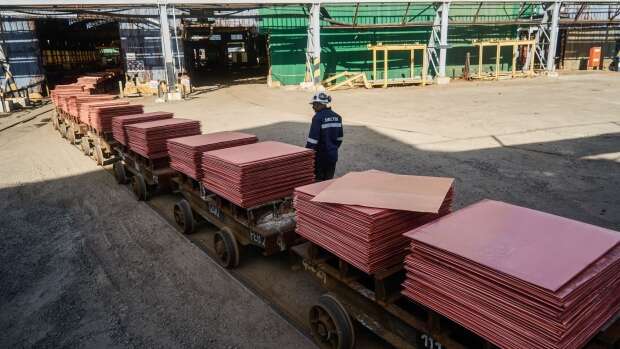Zambia to start trading its own copper, competing with Glencore
“We’ve reached the point where we have to be disruptive. Our benefits from the sector has been quite minimal,” Kayumba said. “There’s a lot of financial engineering, call it creative accounting — transfer pricing reduces our chances of getting a good dividend.”
Zambia plans to directly buy and sell a portion of the copper produced in the southern African nation, competing with trading giants including Mercuria Energy Group Ltd. and Glencore Plc.
“We obviously want to do it in a way that’s fair, that’s commercially suitable for the mining companies,” Jito Kayumba, President Hakainde Hichilema’s senior economic adviser, said in an interview on Monday. “To say that we can come as a commercial player to compete with the other commodity traders, to make financing available for the mines for us to have a fair share of the resource.”
Zambia joins neighbors including Botswana and Democratic Republic of Congo in trying to secure greater economic benefits from its mineral wealth through getting access to the commodities to sell directly to buyers. While the government has shareholdings in some mines, it’s argued for decades that state revenues from them are too low.
Companies including First Quantum Minerals Ltd. and Barrick Gold Corp. operate mines in Zambia, Africa’s second-biggest copper producer.
The government could start with a limited amount of about $100 million and build its trading business, Kayumba said at the Investing in African Mining Indaba conference in Cape Town. It could have legislation ready in the next three to six months, he said, adding the government may opt to receive physical metals instead of royalties from some mines.
“We’ve reached the point where we have to be disruptive. Our benefits from the sector has been quite minimal,” Kayumba said. “There’s a lot of financial engineering, call it creative accounting — transfer pricing reduces our chances of getting a good dividend.”
The government will hire the necessary expertise to start trading its copper, and shouldn’t struggle to compete as it has direct access to the resources, according to Kayumba. The move will open a window into the financial world of commodity trading and help the government see how much profit from its copper remains abroad — some of it in countries like Switzerland, where commodity traders including Glencore are based, he said.
“It gives us transparency,” Kayumba said. “We’ll see ‘Ah! That’s what happened in Switzerland’.”
The European country accounts for about 46% of Zambian export earnings, according to official data.


